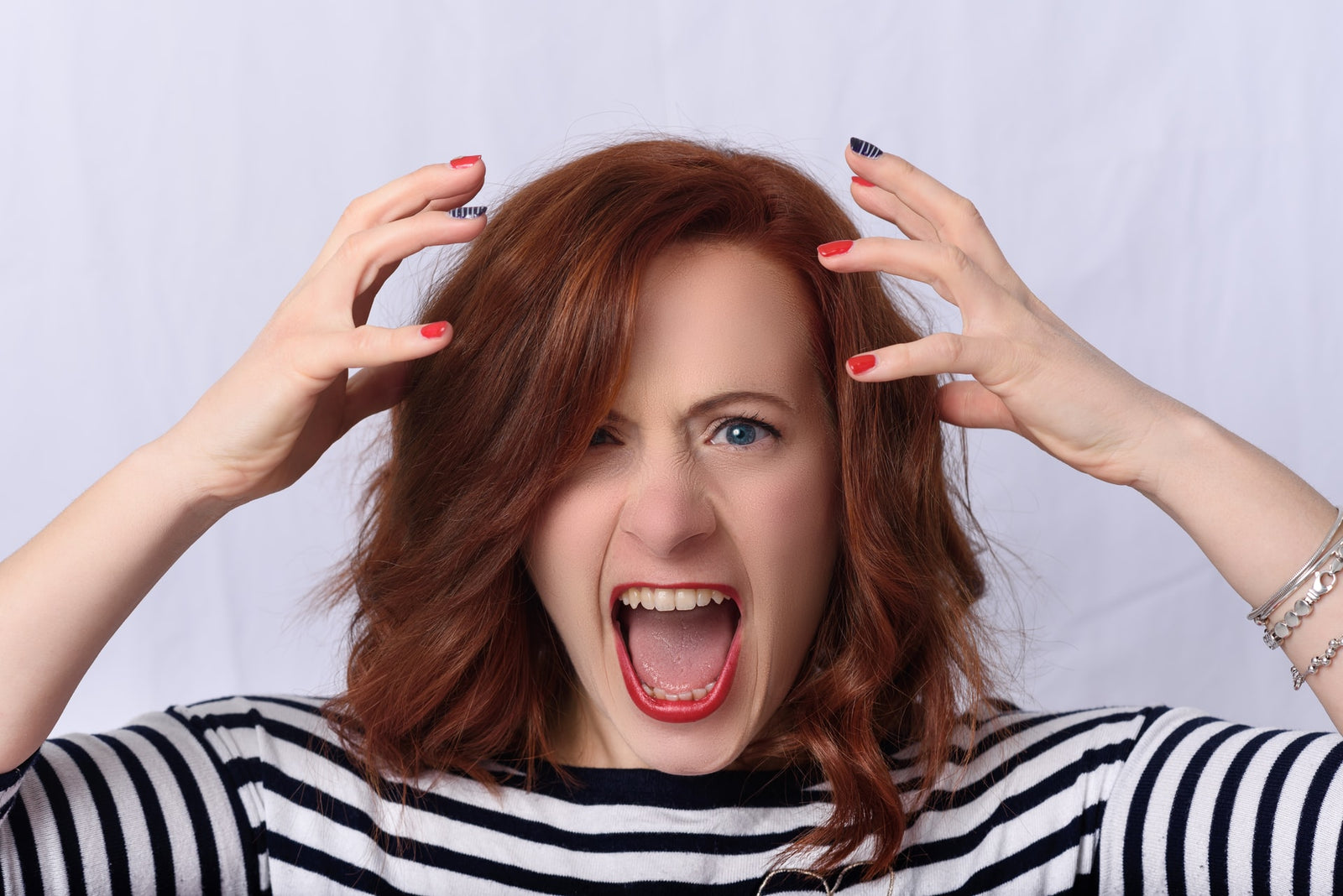St. John's wort may help people who are depressed, or with the unwanted symptoms of menopause, including hot flashes.
It is a flowering shrub from Europe that usually blooms around June 24, the time of St. John the Baptist's birthday, hence the name. It has been used in traditional medicine for centuries, though for a long time its main use was in magic potions.
And there is evidence that the herb is actually helpful for mild and moderate depression. A scientific study in the journal Praxis states [1]:
... in more recent times it has found its place in the treatment of depression and anxiety disorders. In numerous clinical double-blind trials against placebo and other antidepressants the whole extract of St.-John's wort, e.g. as in Jarsin coated tablets, has proved to be just as effective as the other antidepressants for mild and moderate depression, but not for severe depression.
And an article from Mayo Clinic says [2]:
Several studies support the therapeutic benefit of St. John's wort in treating mild to moderate depression. In fact, some research has shown the supplement to be as effective as several prescription antidepressants. It's unclear whether it's beneficial in the treatment of severe depression. Because St. John's wort interacts with many medications, it might not be an appropriate choice, particularly if you take any prescription drugs.
St. John's wort for menopause
A study in the journal Obstetrical Gynecology of the helpfulness of black cohosh and St. John's wort extracts in women with menopause complaints found that they helped women mentally and physically [3]:
"This fixed combination of black cohosh and St. John's wort is superior to placebo in alleviating climacteric complaints, including the related psychological component," the study says.
Other studies have found similar results, including this one [4].
Mayo Clinic says:
Some evidence suggests that taking St. John's wort alone or in combination with black cohosh or other herbs might reduce menopausal symptoms such as hot flashes.
Women who don't want to take hormone replacement therapy may be looking for a replacement. Both black cohosh and St. John's wort are in VALI Balance [5], a health supplement that helps women deal with unwanted symptoms of menopause.
The transition period of perimenopause, menopause and postmenopause can cause hot flashes, night sweats, vaginal dryness, urinary discomfort, sleeping issues, irritability, mood swings, headaches, low energy and weight gain.
In addition to St. John's wort and black cohosh, Balance supplements women's body with three other natural herbs and nutrients that help the body adjust to changing estrogen and hormone levels, and reduce discomfort from menopausal symptoms.
Balance[6] also contains chasteberry berries vitex, licorice root, and dong quai angelica.
A doctor explains how herbs can help alleviate menopause symptoms.
Precautions for St. John's wort
Pregnant and nursing women are cautioned not to use St. John's wort. The herb may cause the following conditions, according to Mayo Clinic:
- Agitation and anxiety
- Dizziness
- Diarrhea, constipation and stomach discomfort
- Dry mouth
- Fatigue and insomnia
- Headache
- Increased sensitivity to sunlight (photosensitivity)
In addition, St. John's wort may interact with a host of drugs, so you should check with your doctor before taking it if you are on medication. Mayo Clinic has a long list giving warnings that St. John's may interact adversely or reduce the effectiveness of the following drugs:
Alprazolam or Xanax, antidepressants, barbiturates, bupropion or Wellbutrin SR or Forfivo XL, certain chemotherapy drugs, certain immunosuppressive drugs, certain statins like Zocor or Flolipid, contraceptive drugs, dextromethorphan
Digoxin or Lanoxin, fexofenadine or Allegra, ketamine or Ketalar, narcotics. non-nucleoside reverse transcriptase inhibitors, omeprazole (Prilosec), phenytoin (Dilantin, Phenytek, photosensitizing drugs. protease inhibitors, triptans. voriconazole, warfarin (Jantoven)
How to deal with menopause
VALI's blog has a posting titled "How to Deal with Menopausal Symptoms: 7 Options that You Can Try" [7]. The methods are:
Hormone Therapy
Ovaries do not produce enough estrogen and progesterone during menopause, so boosting the levels of these hormones through hormone therapy is an option. It can ease many symptoms such as hot flashes, vaginal dryness, hair loss, and emotional stress. It is also used as a precaution for osteoporosis.
There are two types: [6]
1. Estrogen Therapy (ET)
Estrogen is taken alone, generally recommended in low doses. It usually comes in pills or a patch, but can also be prescribed in cream, vaginal ring, gel, or spray forms.
2. Estrogen Progesterone/Progestin Hormone Therapy (EPT)
This is a combination of estrogen and progesterone, available in its natural form or synthetic (progestin).
Non-hormonal Therapies
Since hormonal therapies are not for everyone, your medical practitioner may recommend changes in your diet and lifestyle. These are endorsed for women with other existing medical conditions:
3. Change in Diet
Restricting your intake of spicy foods and caffeine decreases the severity of hot flashes. You can also incorporate plant estrogen (isoflavones) in your meals, like legumes such as soybeans, chickpeas, lentils, and other fruits and nuts.
4. Change in Lifestyle
Light to moderate exercises can help relieve other symptoms such as insomnia, while calm, tranquil types like yoga can help with easing mood swings and alleviating anxieties. Weight loss resulting from exercise and a healthy diet can also help to lessen hot flashes.
5. Communicating issues to support groups
Talking to family, friends, or a therapist or psychologist about your experiences can be a great help to sort out and manage the different emotions during menopause.
6. Identifying triggers and possible non-hormonal medicines for hot flashes
Since hot flashes are experienced by almost 75% of menopausal women, [3] practitioners will almost always advise you to manage your room temperatures to cool day and night, wear layered and comfortable clothes, and quitting smoking.
7. Considering dietary supplements
Consult your doctor about supplements that you can take. Taking supplements that address menopause symptoms such as VALI Balance can help in relief and lessening of health risks. Other disruptive symptoms such as insomnia can be aided by taking sleep supplements.
That blog posting also explains what menopause is and what the symptoms are. The symptoms include depression, so St. John's wort provides a double whammy in combating menopause.
Sources:
[1] https://pubmed.ncbi.nlm.nih.gov/11155493/
[2] https://www.mayoclinic.org/drugs-supplements-st-johns-wort/art-20362212
[3] https://pubmed.ncbi.nlm.nih.gov/16449108/
[4] https://pubmed.ncbi.nlm.nih.gov/20216274/
[5] https://www.valiup.com/products/vali-balance-menopause-relief-60-vegan-capsules
[7] https://www.valiup.com/blogs/vali-blog/menopausal-symptoms








